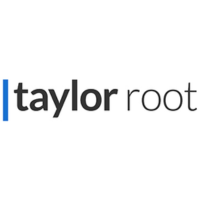

Chief legal and risk officer | AUB Group




Richard Bell
Chief legal and risk officer | AUB Group
Team size: 50
What has been the number one challenge that has impacted you over the past year?
AUB Group recently completed a transformational cross-border acquisition of Tysers Group, a London-based Lloyd’s wholesale insurance broker. This international expansion exposes AUB to laws and regulatory requirements in the various offshore jurisdictions that Tysers operates in, including some jurisdictions which can be higher risk for breach of financial crimes laws and regulatory requirements. Consequently, I was allocated responsibility for leading an enterprise risk management program to integrate and enhance AUB’s risk management across the broader global organisation. AUB’s business is highly regulated and reliant on its licences and therefore this is, and continues to be, a significant program of work which includes continued enhancements to global risk management frameworks and initiating and driving programmes across the organisation to address regulatory requirements and expectations.
In addition, regulatory change in the financial services sector (much of which arose out of the recommendations from the Royal Commission) has meant that in-house teams across the financial services sector have had to navigate these regulatory changes, work with the business to understand impacts and develop and then operationalise frameworks to support ongoing compliance. In this regard, AUB’s in-house team was a key member of the steering committee responsible for designing and overseeing implementation of AUB’s regulatory change management programme.
Looking forward, what technological advancements do you feel will impact the role of in-house legal teams in the future the most?
In terms of risk, advancements in technology, together with increased risk of threat actors and growing ransomware attacks, mean that in-house teams are increasingly required to work cross-functionally, including with the IT team to ensure the company is sufficiently protected from attacks and has processes in place to manage attacks.
In terms of opportunity, technology advancements (in particular with AI) has the ability to drive time and cost efficiencies associated with high volume work, for example populating or reviewing standard contracts at an early stage. The upside of this is allowing in-house legal teams to devote more time to strategic matters and critical business problems.
What would you say are the unique qualities required to be successful as an in-house lawyer in your industry?
It is important to have a good understanding of the company’s industry, business model and strategic objectives and priorities. Not only does this build credibility with business leaders and the executive team, but it also assists counsel in providing good advice and designing fit-for-purpose legal and compliance frameworks aligned to strategy and business model.
It is also important for in-house counsel to have a good understanding of the agreed risk appetite of the organisation and to be able to provide advice which includes a risk assessment element. The Covid pandemic has increased the importance of being able to provide holistic advice which considers a range of matters, including risk appetite, external stakeholder expectation as well as regulatory requirements.
Finally, the role of in-house counsel has also needed to become more skilled at crisis management and mitigation. This includes being able to be a trusted and valued advisor on crises management teams.